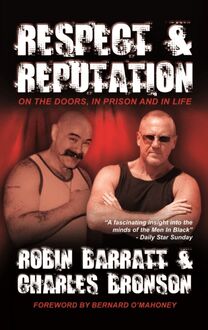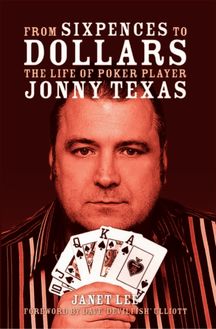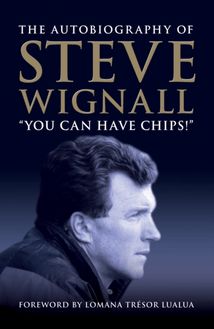What is a Wommett? , livre ebook
72
pages
English
Ebooks
2010
Vous pourrez modifier la taille du texte de cet ouvrage
Obtenez un accès à la bibliothèque pour le consulter en ligne En savoir plus
Découvre YouScribe en t'inscrivant gratuitement
Découvre YouScribe en t'inscrivant gratuitement
72
pages
English
Ebooks
2010
Vous pourrez modifier la taille du texte de cet ouvrage
Obtenez un accès à la bibliothèque pour le consulter en ligne En savoir plus
Publié par
Date de parution
26 mai 2010
Nombre de lectures
1
EAN13
9781907792373
Langue
English
Publié par
Date de parution
26 mai 2010
Nombre de lectures
1
EAN13
9781907792373
Langue
English
Title Page
WHAT IS A WOMMETT
MICK ABRAHAMS
Foreword by Bob Harris
Publisher Information
First published in 2008 by
Apex Publishing Ltd
PO Box 7086, Clacton on Sea,
Essex, CO15 5WN, England
Digital Edition converted and published by Andrews UK Limited 2010
www.andrewsuk.com
Copyright © 2008 by Mick Abrahams
The author has asserted his moral rights
A catalogue record for this book is available from the British Library
All rights reserved. This book is sold subject to the condition, that no part of this book is to be reproduced, in any shape or form. Or by way of trade, stored in a retrieval system or transmitted in any form or by any means, electronic, mechanical, photocopying, recording, be lent, resold, hired out or otherwise circulated in any form of binding or cover other than that in which it is published and without a similar condition, including this condition being imposed on the subsequent purchaser, without prior permission of the copyright holder.
Cover Design: Siobhan Smith
Acknowledgements
To Kate Abrahams. Nick Abrahams. Alex Abrahams. For their unfailing love and support in everything I have ever done and for being the best family anyone could possibly have. To Martin Turner for encouragement and help beyond the call of duty, for friendship and helping me believe I could actually write this book! Martin Webb and Dave Rees and all at A New Day magazine for being constantly supportive and helpful. Jeff Adams. For his superb harmonica. Ian Anderson. For helping my steps take right direction and friendship. Andrea Bandi. For Friendship. Dave Bedford. For Friendship and making sure I never ran the London Marathon! Paul Bell. For Friendship and a great voice. Clive Bunker. For Friendship and great drumming. Peter Brend. For Friendship and support. David Copperfield. For Friendship and keeping me laughing! Rachal Davidson. For all the hard work on current projects. Richard Desmond. For Friendship and letting me beat him at squash! Ritchie Dharma. For Friendship and great drumming. Steve Dundon. For Friendship and great flute playing. Pete Fensome. For Friendship and great bass playing. Andrea Garavelli. For Friendship and great bass playing. John (Guinness) Gordon. For Friendship and great bass playing. Ralph Goss. For Friendship and great drinking ability!
Colin Hodgkinson. For Friendship and great bass playing. Brian Hodgson. For Friendship and great bass playing. Alex Hold. For Friendship and great roadying all these years! Bob (bombardier) Jenkinson. For Friendship and just being a Gunner! Paul (cabbage hat) Buchanan for friendship and cool photography. Paul Jones. For Friendship and great harmonica playing and being an all-round good guy. Julianna Rhodes. For Friendship support. Alexis Korner. For Friendship and being a great influence in my life. Jools Kendall. For Friendship and support. Hillary Kiff. For Friendship and support. Chris Lambrianou. For Friendship and support. Jack Lancaster. For Friendship and great musicianship. Albert Lee. For Friendship and being a great influence. Sue Lindars. For Friendship and support. Pete Lindars. For Friendship and support. Sara McCarthy. For Friendship and support and making sure my body still works! Les Minney. For Friendship and support. Pete Moody. For Friendship and support. Nigel (Nobby) Neill. For Friendship and support. Kimbo Neill. For Friendship and support. Andy Pyle. For Friendship and great bass playing. Elliott Randall. For Friendship and great guitar playing. Jim Rodford. For Friendship and great bass playing. Steve Rodford. For Friendship and great drumming. Dexter Smith. For chopping my dogs up. Mike Summerland. For great bass playing and eating my toothpaste! Andy Viccars. For Friendship and making sure my guitars work properly. Graham Walker. For Friendship and great drumming. Sharyn Warwick. For Friendship and being my new sister! Sharon Watson. For Friendship and great singing. Geoff Whitehorn. For Friendship and great guitar playing. Frank Lea. For friendship and support. Rikki Massini. For friendship and great guitar playing.
If I have missed anyone out, I am truly sorry but it’s not because I think any the less of you or have forgotten you. It’s just that I really need a cup of tea and I’m tired!
Foreword
by Bob Harris
For a while there, in the sixties, it felt like Britain was the centre of the Rock ‘n’ Roll universe. Spearheaded by the Beatles, British music had stormed to the top of the charts all across the planet.
A young, exciting, new generation of musicians had arrived, blowing away the old order and grabbing hold of the music scene, taking playing and production to heights of energy and creativity we had never experienced before. In particular, the late sixties yielded a mind-blowing array of world-class UK guitar heroes who completely changed the perception of what the instrument could do.
Eric Clapton, Jeff Beck, Jimmy Page, Pete Townshend, Rory Gallagher, Alvin Lee, Peter Green, Keith Richards, Mick Taylor and others were taking their playing to completely new levels of feel and expertise.
Standing right beside them was blues guitarist and founder member of Jethro Tull, Mick Abrahams.
He made his studio debut with Jethro Tull on the album ‘This Was’, which stormed into the charts in 1968. By then, the band had become established as one of Britain’s most spectacular live acts, with Mick’s distinctive style beautifully offsetting the flute playing and wild stage antics of cofounder Ian Anderson.
‘This Was’ mostly featured music written by Mick and Ian, but the record also included the traditional blues song ‘Cat’s Squirrel’ ... the track that did more than anything to forge Mick’s reputation as one of the finest guitar players of a golden generation.
The book you are about to read tells the story of the curve up to that point and of the trials, tribulations and triumphs since ... a road trip through the life of a born survivor, through good times and bad.
Forty years on from those heady days of the sixties, I am preparing to go onstage to introduce Mick and a host of special guests at his 65th birthday concert, to celebrate his contribution to British music and to acknowledge his continued dedication to the creation of great blues, country, rock and jazz influenced music that is both heartfelt and unique.
The sixties was a fantastic time. Today is even better.
Bob Harris
Preface
A preface explaining why so many stories and not so much about the music
Throughout the course of this book I have tried my best to be fair, truthful in my story and impartial towards friends and foes alike. You might think that I have been more concerned about recalling funny incidents and some (I will openly admit), hooligan type behaviour from me and my companions and perhaps not enough about the actual music itself. Let me explain.
The music on its own spoke volumes about life in general from my point of view. I went through many changes as a player, a songwriter and a man. I have never been a self promoting individual, a purist or a serious hardcore expert authority on anything. If what I do and play feels right and is done with good heart, then that’s always going to be the greatest reward I could ever have. What has happened in the past is in the past. Most of what I did, good and bad (I like to think that most of it was good), was what it was. The bad things I am rightly ashamed of and do not condone in any way, but that’s good old life being what it is and just that. The good things in music or otherwise I am rightfully and justly proud of. I wouldn’t change one bit of it. The people who know what I am really like will tell you that I am still a big kid at heart and, although as I get older I can be a grumpy git at times, I still love and live life to the full. I intend to carry on doing just that; making good music and receiving and giving joy from the good fortune with which I have been blessed.
Mick Abrahams, 2008
Introduction
1975: Putting It All Away
There wasn’t even the tiniest tinge of regret as I closed the loft hatch and put the stepladder back in its place in our garage. In fact, I was almost at the point of feeling quite numb about the whole thing… but maybe not quite yet. This, only time would tell.
I’d just put my old faithful Gibson SG Special guitar in its battered, world-weary case, left it lying up in the loft, and said: ‘That’s it, I’ve had enough of this crap. I want to feel normal again, even if it is just for a while… enough to give me some breathing space.’
You can probably tell by my opening remark that I too was battered and world-weary. I wasn’t quite a case… but I was definitely distressed and at the end of my tether, not only with the music business but, sadly, with life in general. You might call it manic depression; personally, I’d call it a cluster fuck.
Since I was a young lad I’d had this dream of being a guitar player and a famous one at that. And in this I guess I was no different to any other young ambitious kid, dreaming about the particular profession or calling in which he or she wanted to excel and become internationally renowned.
To some extent I had actually achieved that dream: I had been a founder member of the world-famous rock band, Jethro Tull; a founder member of the not-quite-so-world-famous, but highly respected Blodwyn Pig; and finally I formed what simply became known as The Mick Abrahams Band and we even appeared on Top of the Pops !
But then for me somehow it all went tits up. Some of this was down to the way that the world is, whilst some of it, I well realise, was my own fault for not really following through on things that I should have. At least that’s what some people have told me from time to time. In fairness, many of them have been right about so









